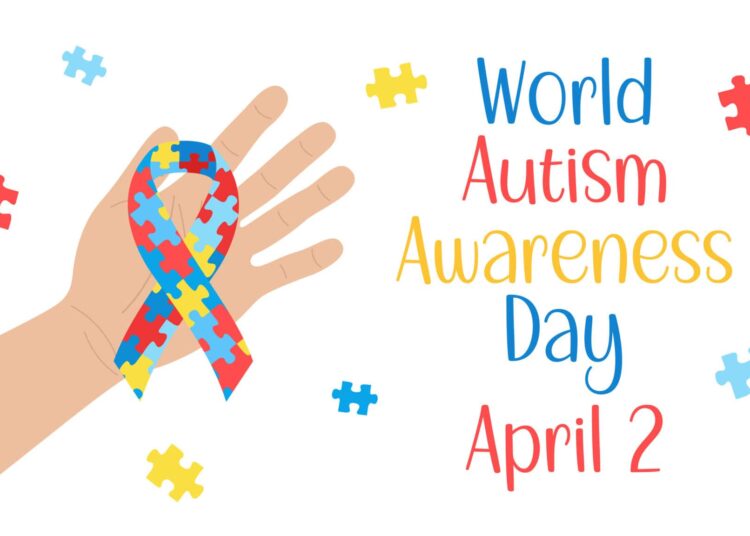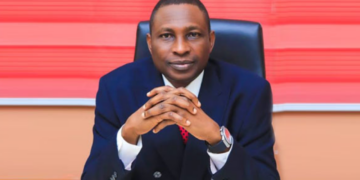Every year, on 2 April, the world celebrates World Autism Awareness Day. This day is dedicated to raising awareness about autism spectrum disorder (ASD) and promoting acceptance and understanding of individuals with autism.
It is a day to celebrate the unique abilities and talents of individuals with autism while acknowledging their daily challenges.
With this year’s global theme “Advancing Neurodiversity,” we face the uncomfortable truth that our nation has fallen woefully short in addressing autism with the urgency and compassion it demands.
The widespread ignorance, stigmatisation, and lack of support systems for those with autism spectrum disorder (ASD) represents not just a failure of our healthcare system, but a moral failing of our society.
In Nigeria, where the World Health Organisation ( WHO)estimates that autism affects one in 88 children, the reality is far more complex and troubling than mere statistics suggest. Many cases go undiagnosed or are discovered only when speech impediments become apparent – too late for the early intervention that experts universally agree yields the best outcomes.
More distressing still is the persistence of dangerous superstitions in rural areas, where autism is sometimes attributed to demonic possession or witchcraft, subjecting vulnerable children to harmful “treatments” rather than evidence-based care.
No doubt, living with autism spectrum disorder (ASD) comes with a unique set of challenges. Autism is a complex developmental disability that affects how a person communicates, interacts, behaves, and processes sensory information.
One of the hallmark characteristics of ASD is impaired social functioning. Many autistic individuals struggle to pick up on social cues, understand body language, make eye contact, or engage in reciprocal conversation. Forming friendships, navigating group settings, and reading people’s intentions is challenging.
Up to 50 per cent of people with autism have some degree of language impairment. Some remain nonverbal, while others have limited vocabulary or speech. Many struggle to express their wants and needs. Difficulty following instructions or participating in dialogue can lead to frustration.
There are multiple options to facilitate communication. Speech and language therapy from a qualified professional can build vocabulary and conversation abilities. Augmentative and alternative communication (AAC) devices generate speech when buttons or icons are pressed. Picture exchange communication uses images to represent ideas. Sign language provides visual representations of words. Voice output systems allow typing to be converted to audible speech.
Sensory processing issues are another common trait of ASD. Bright lights, loud sounds, strong scents, tactile sensations, or taste/texture issues can overwhelm the nervous system. This sensory overload leads to episodes of anxiety, agitation and meltdowns. Crowded, noisy settings like schools, malls or stadiums are especially challenging.
Creating a low-stimulation environment helps manage input, which can be helpful in managing autism challenges that include sensory overload. Noise-cancelling headphones, sunglasses or hats, and soft natural fibre clothing filter sensations.
In Nigeria, like in many other countries, individuals with autism face numerous challenges that make it difficult for them to participate in society fully. One of the biggest challenges is the lack of awareness and understanding about autism, which often leads to stigma and discrimination. Many people do not understand what autism is, and as a result, individuals with autism are often misunderstood and marginalised.
Children with autism in Nigeria face additional challenges, including limited access to education and healthcare services. Many schools in Nigeria are not equipped to support children with autism, which means that these children are often left behind and do not receive the support they need to reach their full potential.
Additionally, healthcare services for individuals with autism are limited, making it difficult for families to access the resources and support they need.
To address these challenges, the federal government must take action and prioritise the needs of individuals with autism. One important step is to invest in education and training for teachers and healthcare professionals to equip them better to support individuals with autism.
Additionally, the government should work to increase access to healthcare services for individuals with autism, including early intervention programs and therapy services.
Another important step is to raise awareness and promote acceptance of individuals with autism in Nigerian society. This can be done through public awareness campaigns, educational programs, and community events highlighting the abilities and talents of individuals with autism.
By promoting understanding and acceptance, we can create a more inclusive society where individuals with autism are valued and supported.
We call upon Nigerian society at large to examine its attitudes toward difference and disability. Our cultural emphasis on community and mutual support must extend to those with autism and their families. This means moving beyond tolerance to genuine acceptance, creating spaces where neurodiverse individuals can participate fully in social, cultural, and economic life.
As we mark World Autism Awareness Day 2025, let it not be merely another observance on the calendar but the beginning of a national commitment to “Advancing Neurodiversity” in meaningful ways.
Nigeria’s future prosperity depends on harnessing the full potential of all its citizens, including those with autism. We cannot afford to waste another generation of talent and possibility through ignorance, stigma, and institutional neglect.





